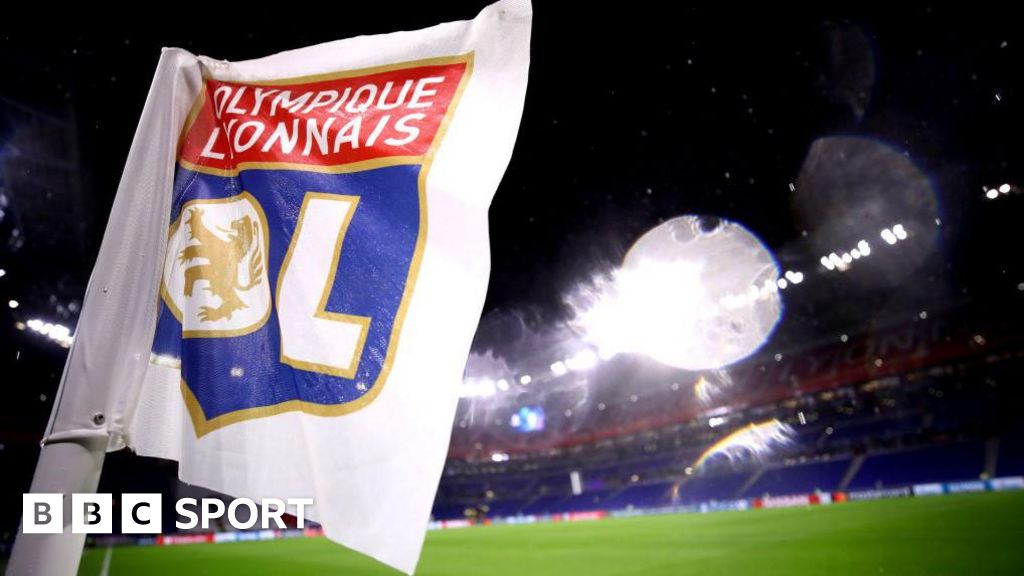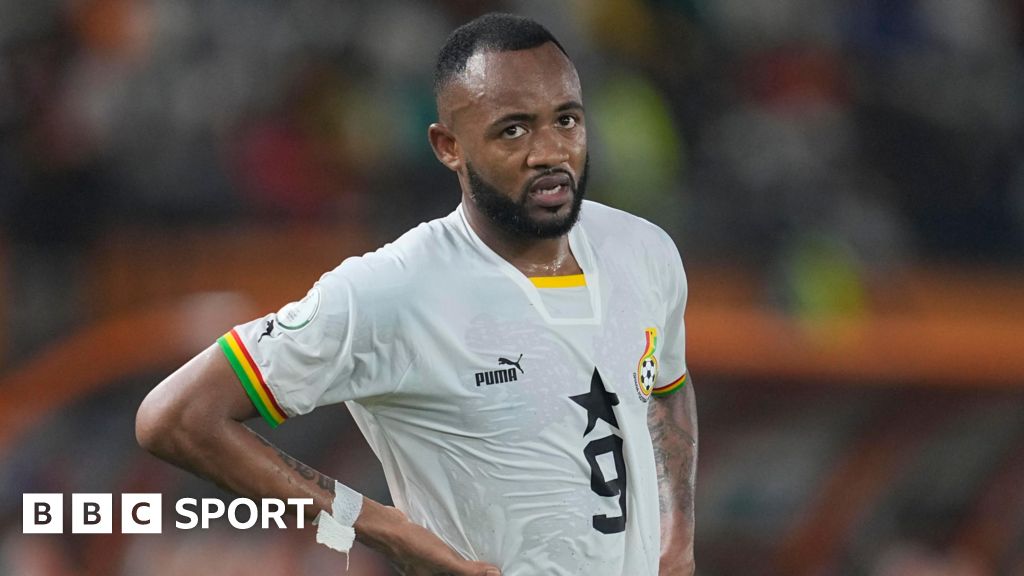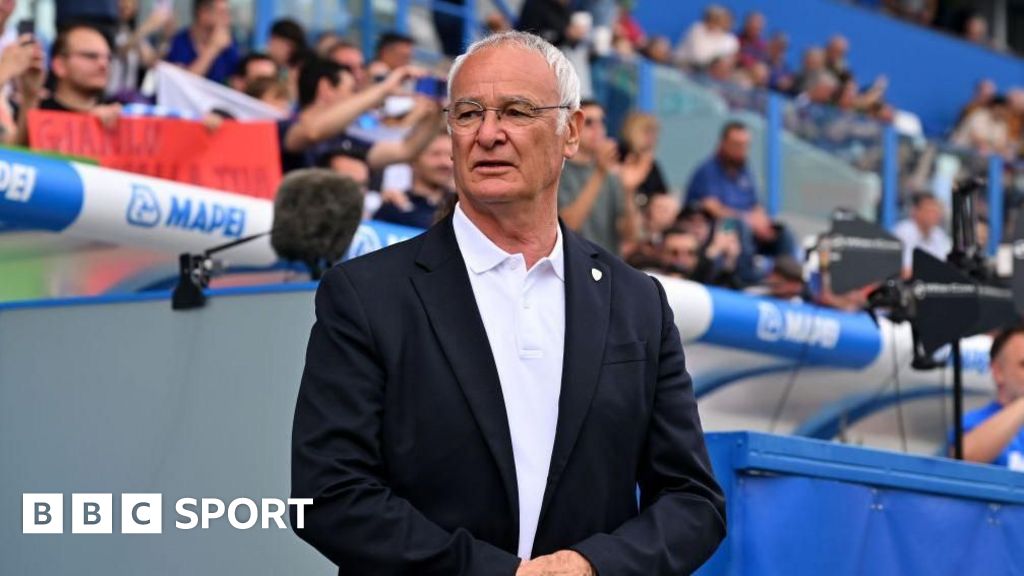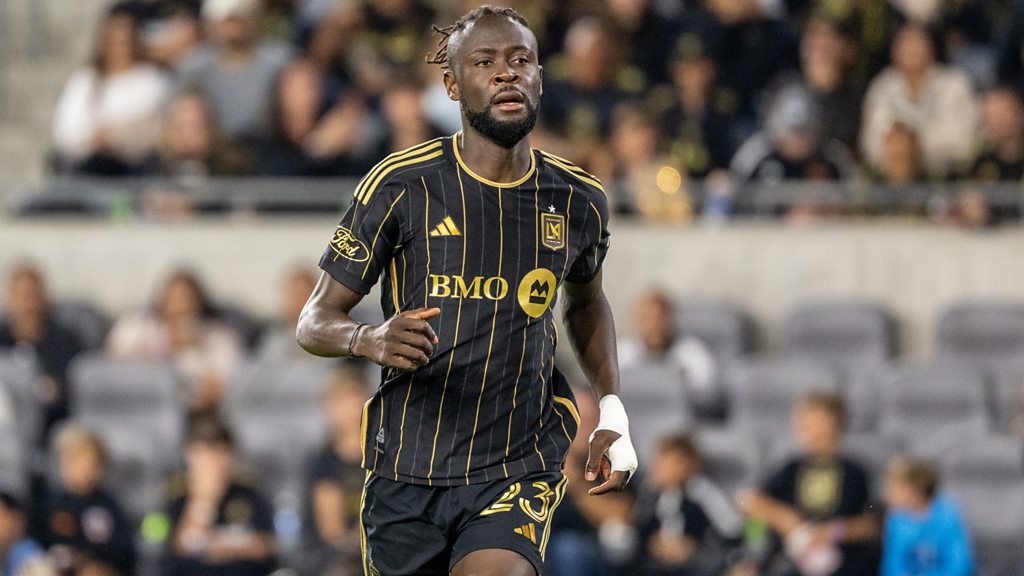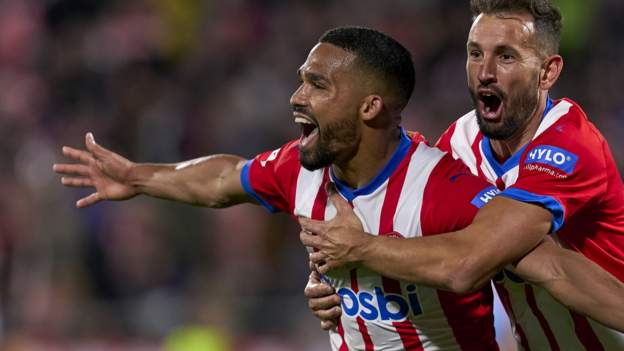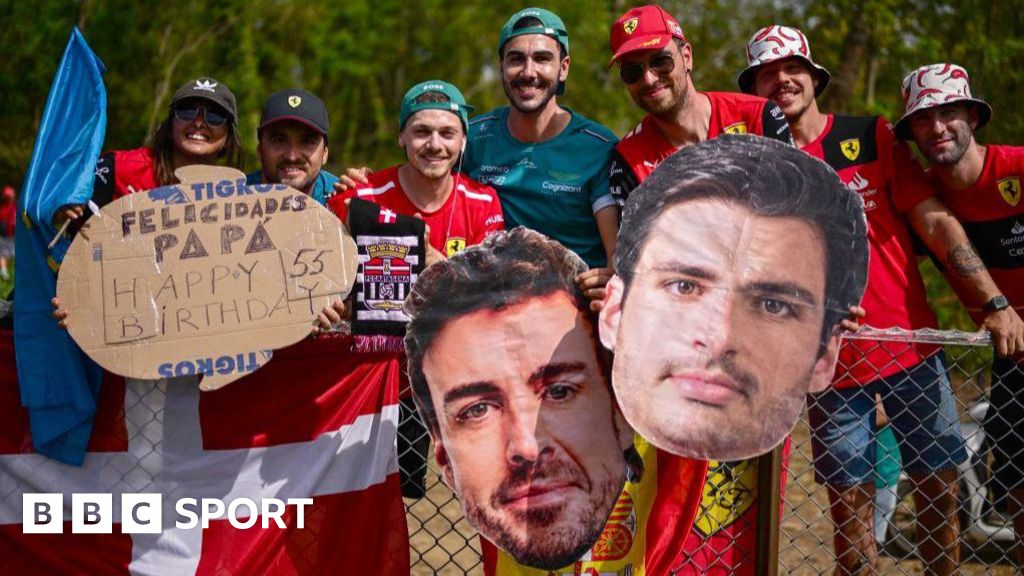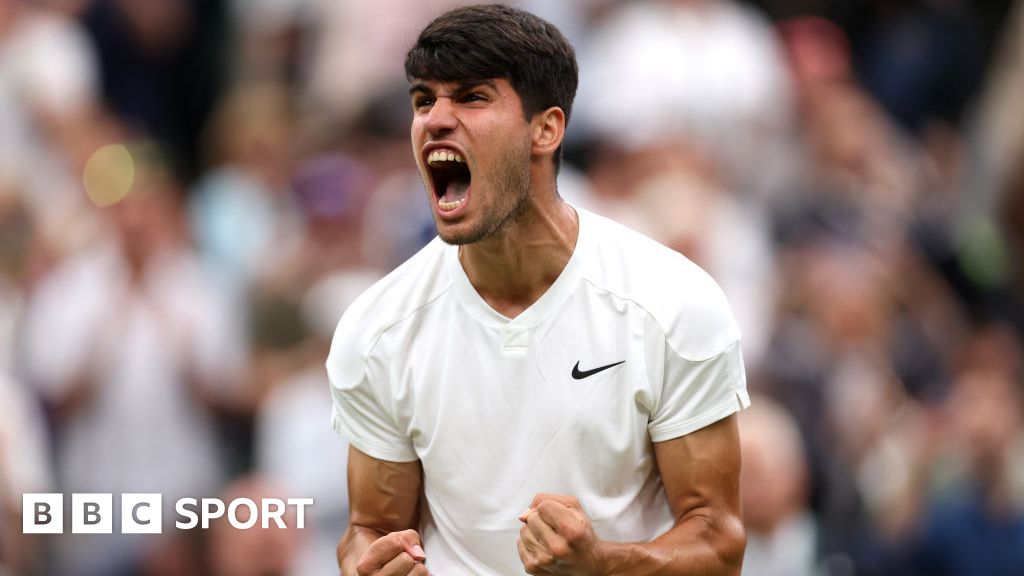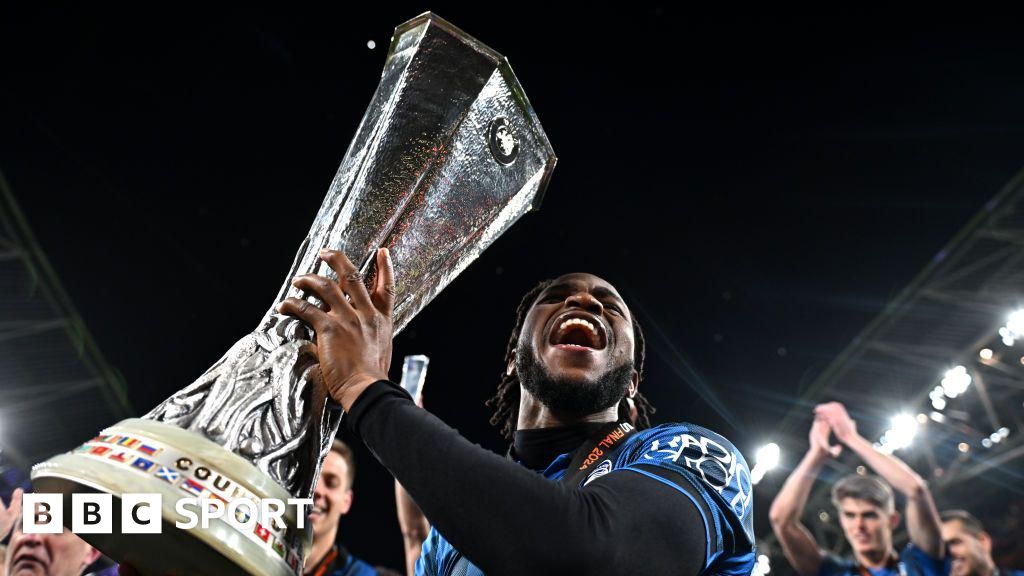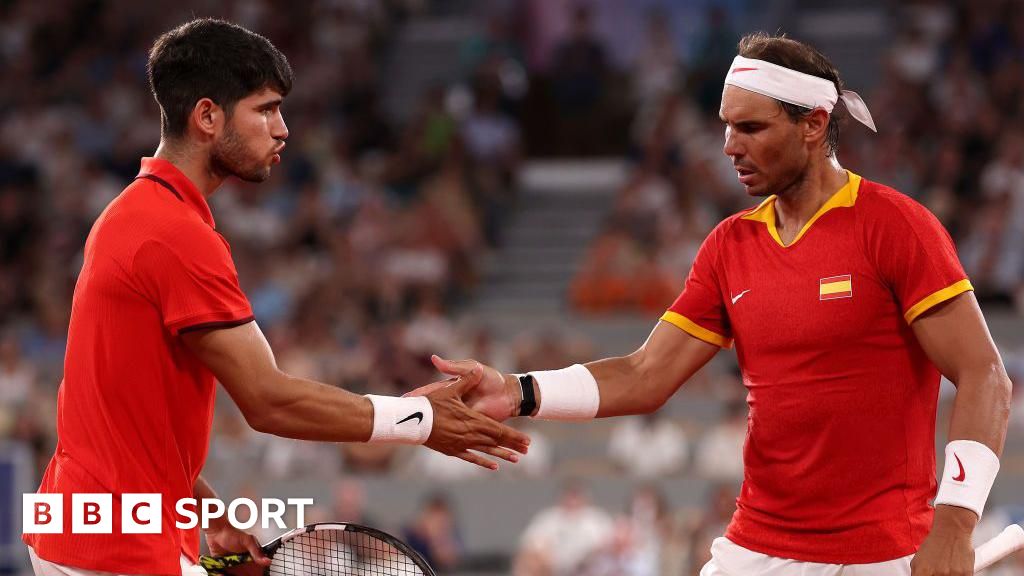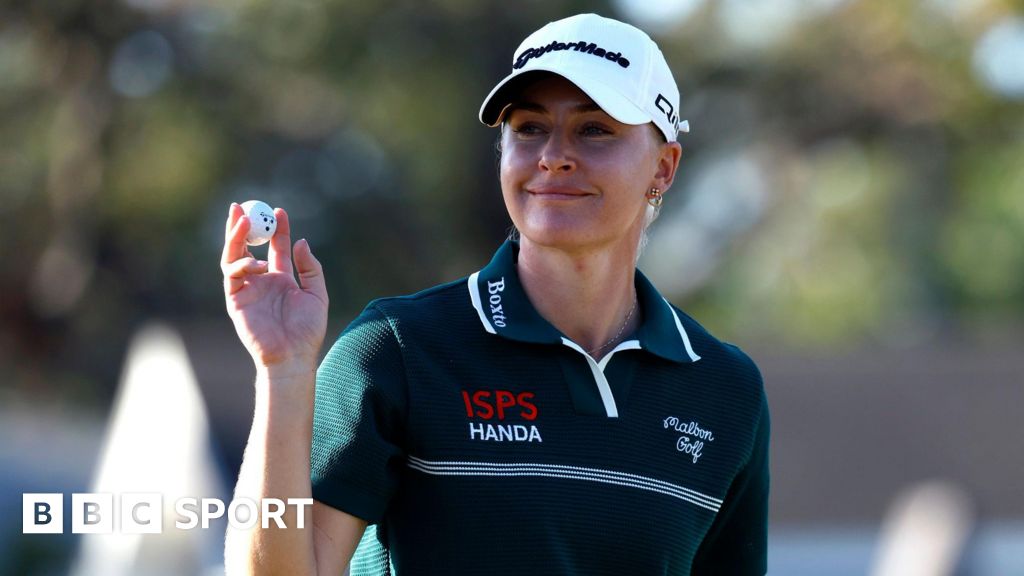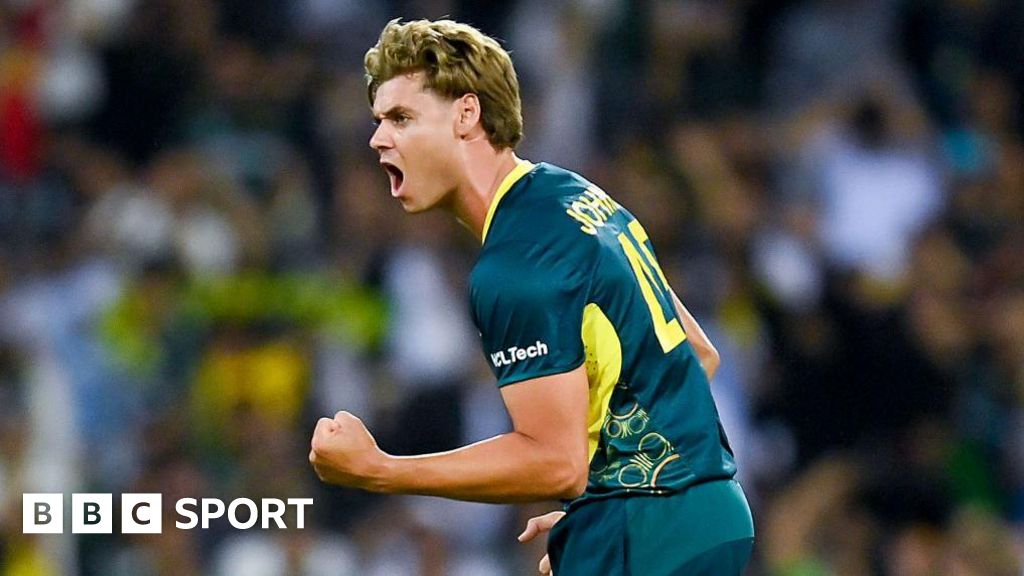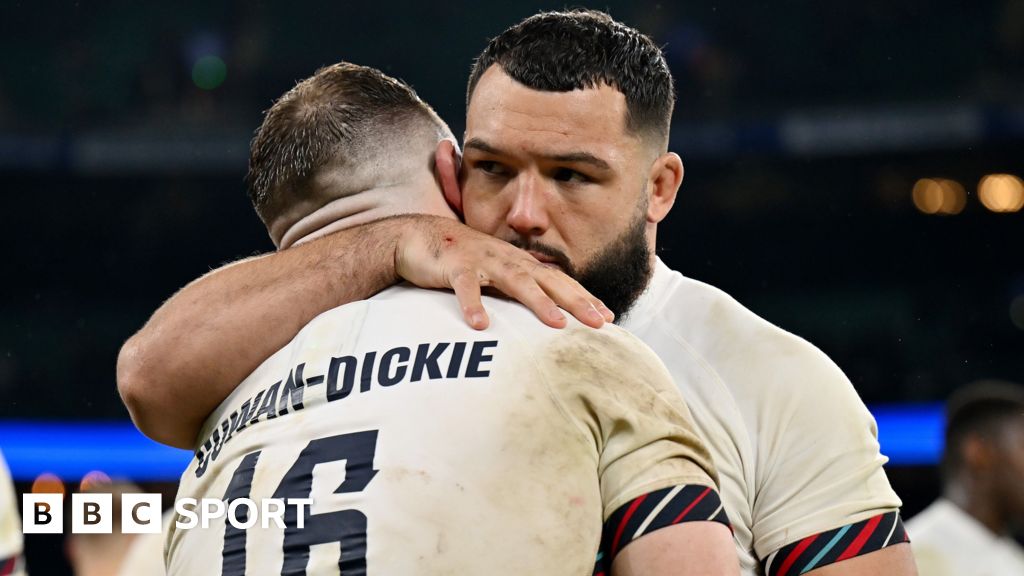Not reigning champions Barcelona. Not Jude Bellingham’s Real Madrid. Not even perennial title candidates Atletico Madrid.
The team sitting two points clear at the top of La Liga, with 10 wins from their opening 12 games, are tiny Girona, playing only their fourth-ever top-flight season and possessing the league’s smallest stadium.
BBC Sport explores how they’ve done it.
Made in Manchester
The story of Girona’s success starts 1,000 miles to the north, in Manchester.
In 2017, Girona were one of the first clubs to become part of the global Manchester City Football Group (CFG) network. Ever since, they have benefited from City’s expertise and organisational structure.
Girona also benefit from City’s players, receiving a steady trickle of young talents either being prepared for potential Premier League action, deemed not quite good enough for Pep Guardiola’s plans or simply being put in the shop window.
For example, striker Taty Castellanos netted 14 goals for Girona last season on loan from New York City FC, another CFG club, and was then sold to Lazio for a reported 20m euros.
The current Girona squad features a plethora of players with City connections.
Explosive 19-year old Brazilian winger Savio, who has three goals and four assists so far this season and looks set for a sparkling future, is on loan from CFG club Troyes. Right-sided dynamo Yan Couto, 21 years old, has been borrowed directly from City. Aggressive midfielder Yangel Herrera, who has scored four goals and ranks second in La Liga for fouls conceded, was signed from City after spending last season on loan.
And, perhaps Girona’s most important player, midfield orchestrator Aleix Garcia, is another former City man. Garcia made nine first-team appearances for the Premier League club between 2015 and 2017 but has really flourished since returning to his native Spain, currently leading La Liga charts for ball touches and passes into the final third.
Girona’s City links run deep on and off the pitch – the club’s executive president is none other than Pere Guardiola, Pep’s brother. And the clearly defined CFG philosophy filters from the top down to the pitch, all the way to an attacking, possession-based style with the use of inverted full-backs.
From Catalonia to Ukraine
It would be very wrong, however, to think of Girona as some kind of City Lite. The CFG ownership is just one of many factors in their success.
Alongside a handful of decision-makers with City connections, the club is also run by two local men whose long history at the helm has provided great stability and clarity of purpose.
Club president Delfi Geli started and finished his playing career with Girona, representing Barcelona and Atletico Madrid in between, before returning in an administrative capacity in 2015.
Sporting director Quique Carcel is another Catalan, starting out in Barcelona’s youth ranks and appearing for various lower-league clubs before taking up his current role in 2014.
Carcel has earned particular praise this season – and a new contract until 2027 – for his clever development of the squad with signings from both near and far.
Working within a tight budget, Carcel picked up cheap quality such as former Manchester United defender Daley Blind, young left-back Miguel Gutierrez from Real Madrid and central defender Eric Garcia – another ex-Manchester City player – on loan from Barcelona.
Carcel’s scouting network, with the help of Guardiola, also identified a couple of gems from Ukraine. Attacking midfielder Viktor Tsygankov arrived midway through last season from Dynamo Kyiv, while frontman Artem Dovbyk was signed in the summer from Dnipro-1.
The elegant Tsygankov has registered five goals and seven assists in his 29 appearances for the club, while Dovbyk has more goals (six) and assists (four) per 90 minutes than any other player in La Liga this season.
Third time lucky for Michel
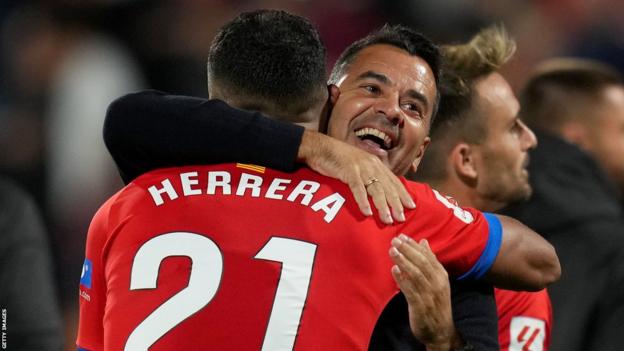
The mixture of young, old, local and international talents has given Girona an exciting and versatile squad, but it still needs somebody to pull everything together.
And, in Michel, the club has struck gold with a coach who understands exactly what the hierarchy wants to achieve and knows how to do it.
The former midfielder’s managerial career started with hometown club Rayo Vallecano, with whom he won promotion in 2018, but he was fired the following season as relegation loomed. The same pattern was repeated at his next club, Huesca, so when Michel joined Girona and immediately achieved yet another promotion, he might have feared another sacking was imminent.
But it has been third time lucky, with Girona going from strength to strength since Michel took them up 18 months ago. With a licence – in fact, a requirement – from the club’s hierarchy to play progressive, attacking football, he has created a team in his own skilful image.
Whereas most small clubs ruffle the feathers of bigger rivals by focusing on defensive organisation and physicality, Girona’s success stems from all-out attack.
They have scored more goals than any other team in La Liga (29, with next-best Atletico on 26), and Michel’s mindset was perfectly illustrated last weekend at Osasuna. Leading 3-2 in the final stages, many managers would introduce an extra defender. But Michel brought on two forwards, one of whom, Portu, supplied an injury-time cross for Garcia to volley home the fourth goal.
Saturday’s trip to Rayo will be a special occasion for Michel. He spent 17 of his 20 years as a player with Rayo, then savoured promotion as a manager before being fired, and now returns top of the league. As he receives well wishes from familiar faces at his former club, Michel could be forgiven for indulging a sense of pride. But that’s not likely, because he is a manager who always wants more.
During pre-season, Michel told his players that, after finishing 10th last season, he didn’t believe the team had yet reached their limits. Those words proved prescient. It remains to be seen where the limits are.
Next stop, Champions League?

